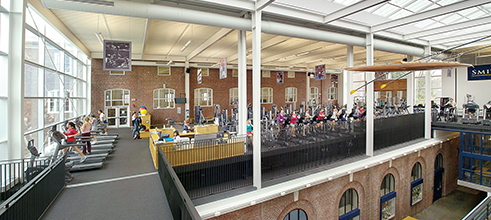Document Type
Article
Publication Date
1-1-2013
Publication Title
Experimental Physiology
Abstract
New findings: • What is the central question of this study? How does parental exercise training directly and/or transgenerationally affect offspring phenotypes over two generations of mice? • What is the main finding and what is its importance? We observed preliminary evidence that parental exercise training can influence health-related phenotypes (e.g. body and fat mass, muscle gene expression) in mouse offspring. These findings indicate that parental exercise may be another environmental factor (like altered nutrition) capable of influencing offspring phenotypes in adulthood. Early life and preconception environmental stimuli can affect adult health-related phenotypes. Exercise training is an environmental stimulus affecting many systems throughout the body and appears to alter offspring phenotypes. The aim of this study was to examine the influence of parental exercise training, or 'exercise ancestry', on morphological and metabolic phenotypes in two generations of mouse offspring. The F0 C57BL/6 mice were exposed to voluntary exercise (EX) or sedentary lifestyle (SED) and bred with like-exposed mates to produce an F1 generation. The F1 mice of both ancestries were sedentary and killed at 8 weeks or bred with littermates to produce an F2 generation, which was also sedentary and killed at 8 weeks. Small but broad generation- and sex-specific effects of exercise ancestry were observed for body mass, fat and muscle mass, serum insulin, glucose tolerance and muscle gene expression. The F1 EX females were lighter than F1 SED females and had lower absolute tibialis anterior and omental fat masses. Serum insulin was higher in F1 EX females compared with F1 SED females. The F2 EX females had impaired glucose tolerance compared with F2 SED females. Analysis of skeletal muscle mRNA levels revealed several generation- and sex-specific differences in mRNA levels for multiple genes, especially those related to metabolic genes (e.g. F1 EX males had lower mRNA levels of Hk2, Ppard, Ppargc1a, Adipoq and Scd1 than F1 SED males). These results provide preliminary evidence that parental exercise training can influence health-related phenotypes in mouse offspring.
Volume
98
Issue
10
First Page
1469
Last Page
1484
DOI
10.1113/expphysiol.2012.070300
ISSN
09580670
Rights
© 2013 The Authors.
Version
Author's Accepted Manuscript
Recommended Citation
Guth, Lisa M.; Ludlow, Andrew T.; Witkowski, Sarah; Marshall, Mallory R.; Lima, Laila C.J.; Venezia, Andrew C.; Xiao, Tao; Ting Lee, Mei Ling; Spangenburg, Espen E.; and Roth, Stephen M., "Sex-Specific Effects of Exercise Ancestry on Metabolic, Morphological and Gene Expression Phenotypes in Multiple Generations of Mouse Offspring" (2013). Exercise and Sport Studies: Faculty Publications, Smith College, Northampton, MA.
https://scholarworks.smith.edu/ess_facpubs/17


